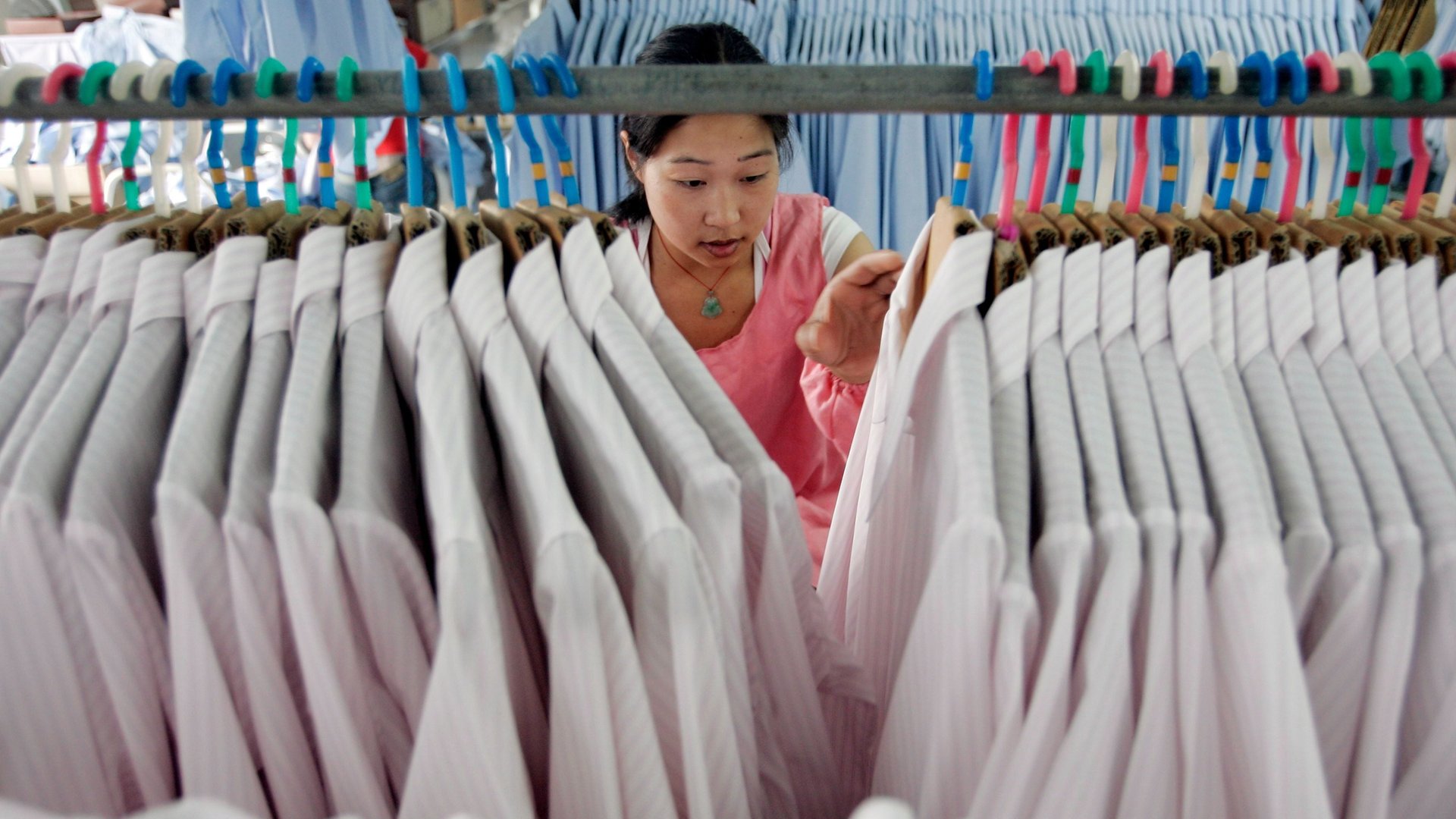“Unbranded” luxury items in China are like knockoffs, with one vital difference
The fashion manufacturers in China have gotten so good that they’ve earned public praise from Miuccia Prada herself (paywall).


The fashion manufacturers in China have gotten so good that they’ve earned public praise from Miuccia Prada herself (paywall).
Some of these factories are using their prowess and reputation for quality to make products nearly identical to those they’re creating for their foreign clients, including prestigious luxury labels, but selling them unbranded at lower prices in China.
Since 2016, manufacturers for brands including Gucci, Burberry, and more have been working with Chinese technology company NetEase to sell such products on its e-commerce site, Yanxuan. The practice has helped drive the rapid growth of Yanxuan, which is emerging as a big e-commerce player in China.
As Forbes pointed out, products you might find on the site include unbranded boots that look an awful lot like Ugg boots, made by a manufacturer of Uggs. But where actual Uggs might cost a couple hundred dollars on Tmall or JD.com, the boots are more like $45 on Yanxuan.
Pan Xiaoning, director of intellectual property at the Chinese law firm Yingke, told Forbes that this manufacturer would probably be violating the terms of its agreement with Ugg. “A majority of brands would have binding terms with their manufacturers that forbids them to use the brands for third-party promotion, in which case NetEase’s conduct is more likely an infringement,” she said.
While Yanxuan has been described as a “knockoff marketplace,” Jing Daily reports that in certain cases, whether or not the products really are knockoffs can be complicated because of a distinction in how factories may work with brands. Not all of them are simple contract manufacturers hired to stitch together fully-finished designs that brands provide them. They may also participate in developing parts of the design to get it ready for commercial manufacturing, in which case they may claim ownership of the intellectual property.
Steve Dickinson, an attorney who helps foreign companies to do business in China, explained the tricky situation in a blog post for his firm, Harris Bricken. He focused on the simplest type of arrangement, explaining, “In this most fundamental form, the foreign buyer provides drawings and a specification sheet. The Chinese factory does the rest of the work, in consultation with the buyer.”
Whether or not NetEase or the manufacturers are infringing on intellectual property, brands, including Ugg, and organizations such as the American Apparel & Footwear Association aren’t happy with the behavior. But it isn’t likely to soon go away.
The site Biyao, for example, started with a similar idea, except it allowed shoppers to customize products from the same manufacturers producing for top foreign brands. The factories themselves can use it as another source of income, too, at a time when more of them are seeing their manufacturing contracts leave China for lower-wage neighbors.